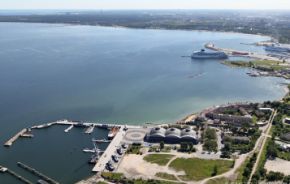Corruption, Estonia, Financial Services, Legislation, Port, Transport
International Internet Magazine. Baltic States news & analytics
Friday, 19.04.2024, 10:06
Prosecutor: Port of Tallinn corruption case includes investigation of money laundering
 Print version
Print version |
|---|
Bribes were given and accepted to maintain these contracts. Other people who have been detained in connection with the case are linked with those enterprises.
According to Feldmanis, in addition to suspicions of accepting, granting and abetting bribes, people involved have also been declared suspects in money laundering.
Feldmanis confirmed that the procurement of ferries by the Port of Tallinn is also involved in the bribery suspicions, but it is not linked to the procurement process organised by the Ministry of Economic Affairs and Communications.
“There are no proof, nor has it been identified that any rules were violated in the course of the ministry's procurement process, or that there was any unjustified preferential treatment; however, there is cause to think that the executives of the Port of Tallinn have received bribes in connection with the transaction of purchasing ferries,” she explained.
According to Feldmanis, in the course of the investigation, law enforcement authorities are co-operating with a number of countries, including with Poland, from where some of the ferries were commissioned.
The prosecutor noted that according to suspicions, Kaljurand had accepted hundreds of thousands of euros in bribes, whereas Kiil had accepted millions of euros. She explained that the money laundering suspicions mean that suspects have been trying to hide the bribes they have received and their connections with the money.
The investigation was launched this year, but the identified crime episodes began in 2009. Some of the instances involve procurement of ferries, and some other contracts and transactions.








 «The Baltic Course» Is Sold and Stays in Business!
«The Baltic Course» Is Sold and Stays in Business!

